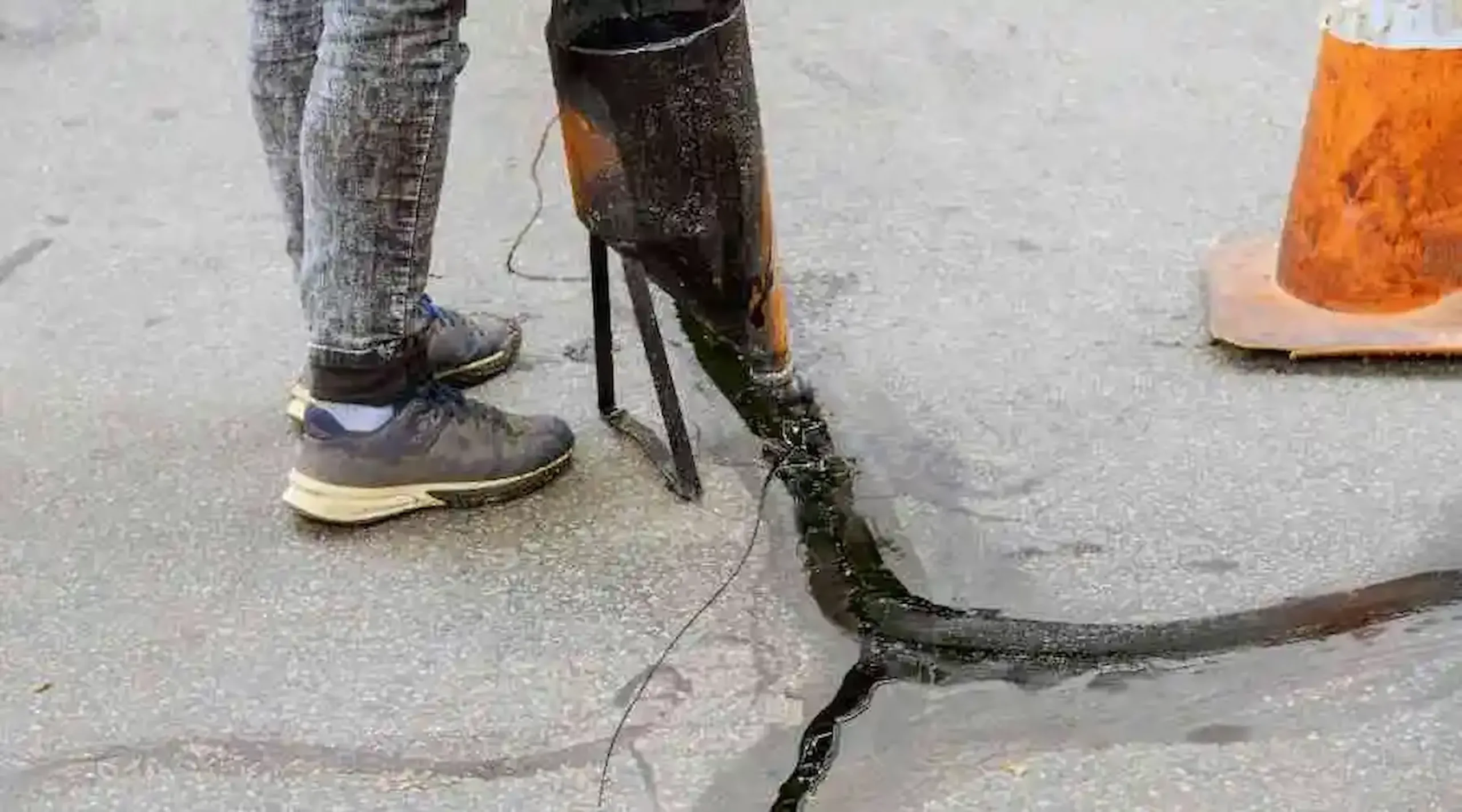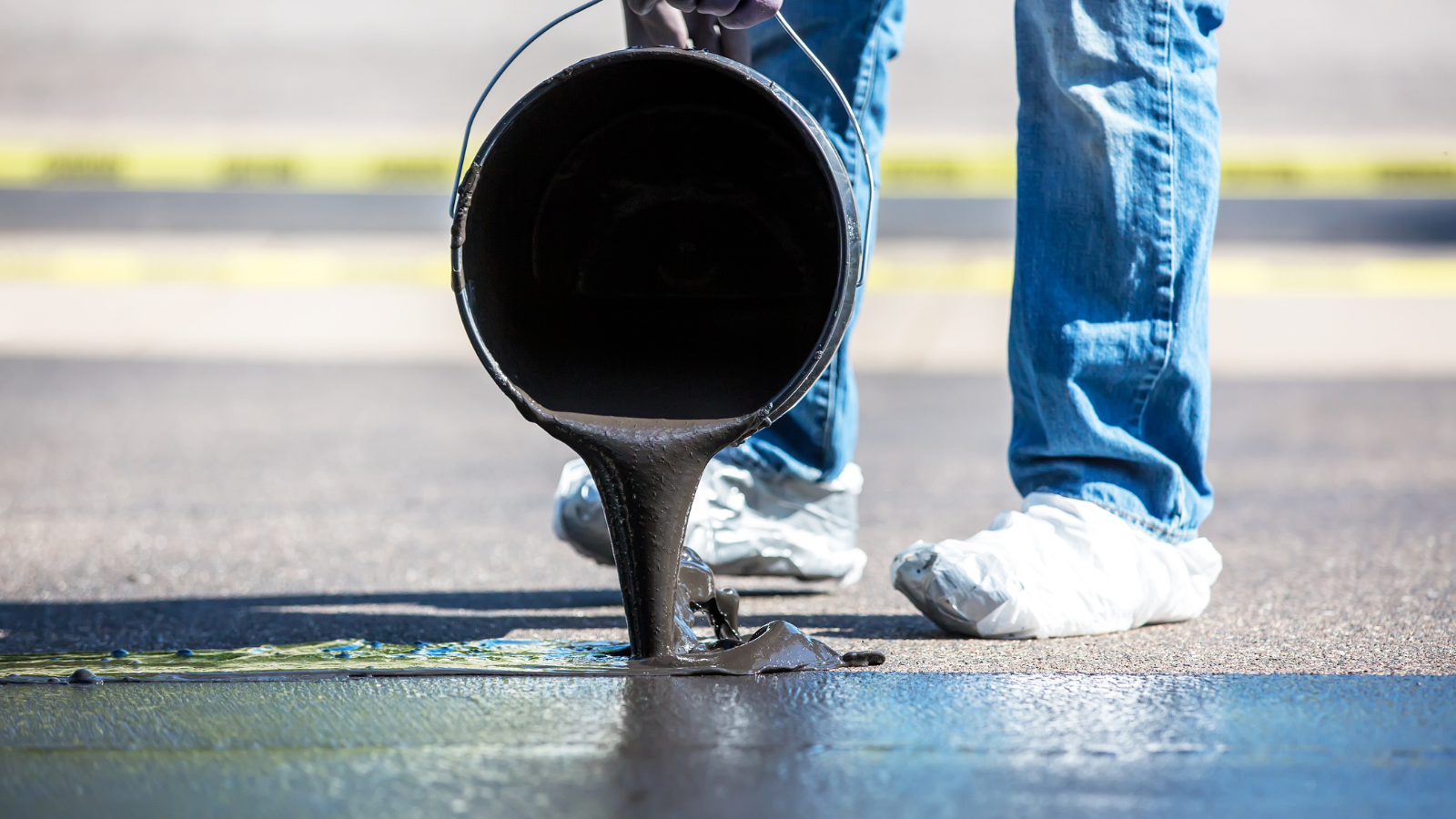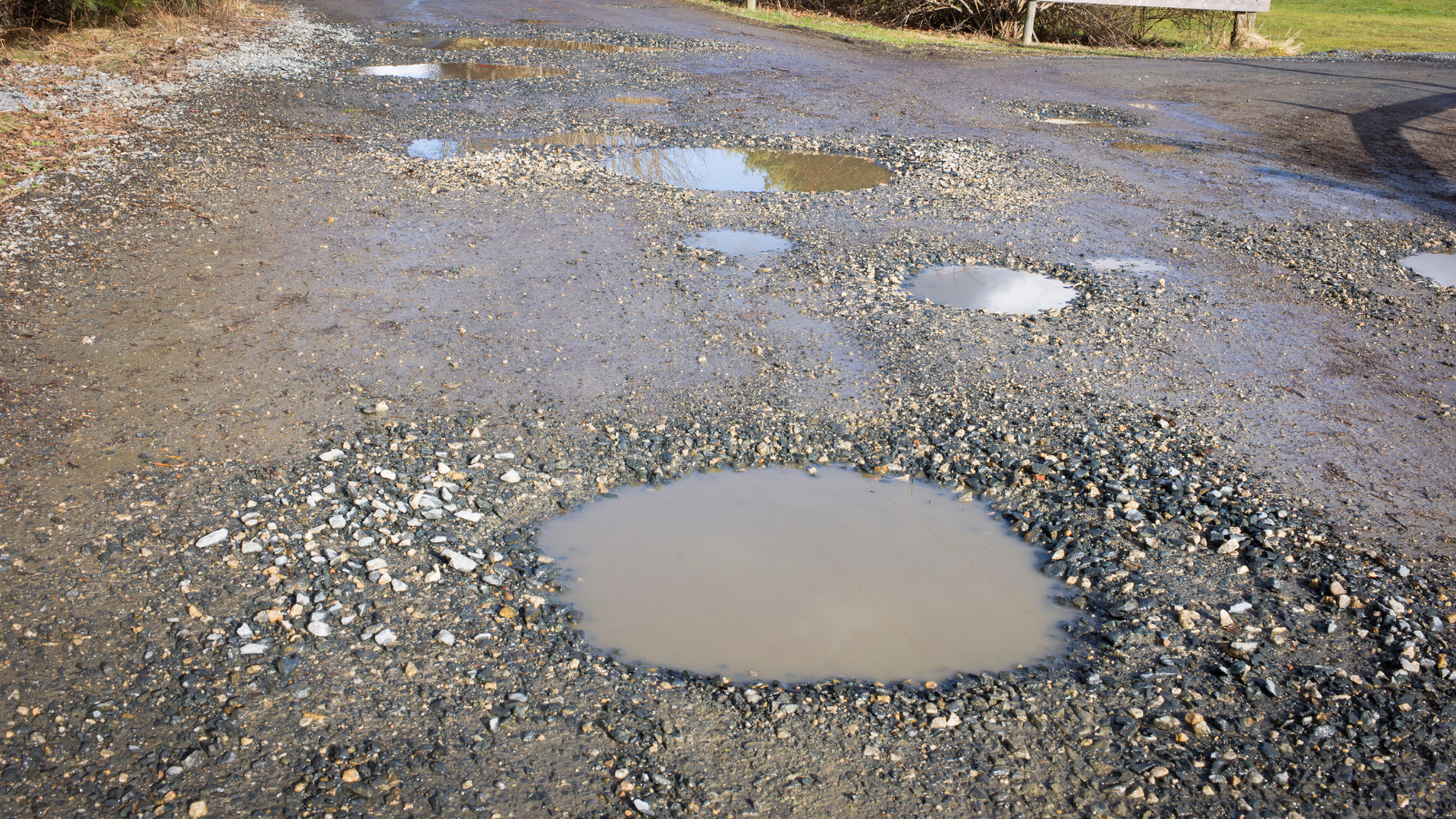Key Takeaways
- Crack Sealing is Essential: Crack sealing is a critical preventive measure that helps protect your parking lot from winter damage, saving you money in the long run.
- Early Intervention is Key: Addressing cracks early prevents potholes, structural damage, and safety hazards.
- Cost-Effective Maintenance: Crack sealing is far more affordable than repaving or replacing your parking lot.
- Extended Lifespan: When done regularly, crack sealing can extend the life of your parking lot by up to 15 years.
- Legal and Safety Benefits: Maintaining your parking lot reduces the risk of accidents and potential legal liabilities.
Crack sealing your parking lot before winter is critical to maintaining its longevity and avoiding costly repairs. With winter’s harsh freeze-thaw cycles, your parking lot can suffer significant damage if left untreated. This guide will explore why cracks form in asphalt, the importance of crack sealing, the best practices for crack repair, and the potential costs involved.
Why Do I Have Cracks in My Parking Lot?
Parking lot cracks typically form due to various factors:
1. Freeze-Thaw Cycles: Asphalt expands and contracts with temperature fluctuations. In cold climates, water penetrates cracks
and freezes, expanding the cracks further.
2. Heavy Traffic: Constant vehicle pressure, especially from trucks, can weaken asphalt and cause it to crack.
3. Poor Installation: Low-quality materials or improper installation can lead to premature cracking.
4. Lack of Maintenance: Regular maintenance is crucial. Without it, small cracks can quickly grow into more significant problems, resulting in extensive repairs or replacement.
5. UV Exposure: Prolonged exposure to sunlight degrades the asphalt, causing it to dry out, harden, and crack.
Understanding the cause of cracks is the first step in addressing the issue. Fortunately, crack sealing is a cost-effective solution that helps prevent further damage.
The Importance of Crack Sealing Before Winter
One of the most economical ways to extend the lifespan of your parking lot is by repairing cracks before winter. The expansion and contraction of asphalt during cold months exacerbate any existing damage. If left untreated, cracks can lead to costly repairs, such as repaving or even complete failure of the asphalt surface.
Crack sealing involves filling the cracks with hot-rubberized sealant, which prevents water infiltration. This keeps the sub-base stable and protects the asphalt from additional damage caused by freeze-thaw cycles.
By addressing cracks early, you can avoid:
Pothole Formation: Cracks are precursors to potholes. Once water penetrates and freezes, it expands and creates voids beneath the asphalt, leading to potholes.
Structural Damage: Without crack sealing, cracks will worsen and affect the integrity of the entire parking lot surface, making eventual replacement more likely.
Keep Your Patio and Driveway Weed-Free with These Simple Tips!
Tired of weeds creeping between your pavers? We’ve got you covered! Our 5 Tips to Prevent Weeds from Growing Between Pavers will help you maintain a pristine, low-maintenance patio or driveway all year long. Say goodbye to unwanted growth and hello to a clean, beautiful outdoor space!
Click here to learn more and start protecting your pavers today!
How Does Crack Sealing Work?
Crack sealing is a relatively simple but highly effective process that involves several key steps:
1. Cleaning the Cracks: The first step is cleaning the cracks of dirt, debris, and vegetation. This uses high-pressure air or heat to ensure the crack is clean before filling.
2. Heating the Crack Filler: The hot-rubberized crack filler is heated to a specific temperature, making it pliable and easy to apply.
3. Filling the Cracks: The heated material is poured into the cracks, filling them from top to bottom and sealing the surface.
4. Smoothing the Surface: The surface is smoothed to ensure a uniform finish, allowing for a seamless appearance and enhanced durability.
The process can be done at any time of year, but it’s essential to do it before winter to avoid further pavement deterioration.
Key Benefits of Crack Sealing
1. Water Resistance: Sealing cracks helps prevent water from seeping into the sub-base, which can cause erosion and structural failure.
2. Prevention of Potholes: As water enters the cracks and freezes, it can lead to the formation of potholes. Crack sealing reduces this risk by preventing water infiltration.
3. Safety: Large cracks and potholes can harm drivers and pedestrians. The property owner could be held legally responsible if someone’s vehicle is damaged or injured because of poor parking lot conditions.
4. Delaying the Need for Repaving: Crack sealing is far more cost-effective than repaving. You can delay the need for more extensive repairs or overlay work by addressing cracks early.
5. Extended Lifespan of Asphalt: Research shows that regular crack sealing as part of a comprehensive pavement management strategy can extend the lifespan of your parking lot by 10-15 years.
Who Should Use Crack Sealing?
Crack sealing is essential for any property that has an asphalt parking lot. This includes:
- Property & Facility Managers
- Homeowner Associations (HOAs)
- Shopping Centers
- Apartments & Condominiums
- Office Complexes
- Industrial Parks
By integrating crack sealing into your regular maintenance plan, you’ll ensure your parking lot remains in optimal condition throughout the year.
Top 5 Reasons to Fill Cracks Before Winter
1. Water Resistance: Sealing cracks prevents water from penetrating the surface and reaching the sub-base, protecting the pavement from freeze-thaw damage.
2. Pothole Prevention: Cracks can lead to potholes over time. Sealing them before winter reduces the risk of severe pothole formation.
3. Improved Safety: Addressing cracks and potholes before they worsen ensures the safety of both vehicles and pedestrians. This reduces the risk of accidents and potential legal liabilities.
4. Cost Savings: Crack sealing is a cost-effective solution that delays the need for expensive repaving projects. It’s an investment in your parking lot’s future.
5. Extended Pavement Life: Crack sealing can add 10-15 years to the lifespan of your parking lot, providing significant long-term savings.
Cost of Crack Sealing an Asphalt Parking Lot in New Jersey
Crack sealing is a relatively low-cost preventive measure, especially compared to repaving or replacing a parking lot. On average, crack sealing in New Jersey costs between $0.60 and $1.10 per linear foot. The total cost depends on several factors:
- Total Square Footage: Larger parking lots require more materials and labor, leading to higher costs.
- Preparation Work: Wide or deep Cracks may require additional prep work before sealing.
- Crack Width and Depth: The broader and more profound the cracks, the more material is needed to fill them, which increases the cost.
- Material Specifications: Higher-quality materials, like hot-rubberized sealant, offer better durability and longevity but may cost more.
Consulting with a professional paving contractor is essential to get an accurate estimate. They can assess your parking lot and recommend the most effective crack-sealing solution.
FAQs: Crack Sealing Your Parking Lot
1. What is the best time of year to seal parking lot cracks?
Crack sealing can be done at any time of year, but the best time is before winter. Sealing cracks in the fall ensures that your parking lot is protected from freeze-thaw cycles, which can cause significant damage.
2. How long does crack sealing last?
Crack sealing can last anywhere from 3 to 5 years, depending on the quality of the material used and the amount of traffic the parking lot receives. Regular maintenance can extend the lifespan of the sealed cracks.
3. How does crack sealing differ from seal coating?
Crack sealing involves filling individual cracks in the asphalt, while seal coating applies a protective layer over the entire surface. Both are essential for asphalt maintenance, but crack sealing should be done first to address any underlying damage.
4. Can I seal the cracks in my parking lot myself?
While it’s possible to buy crack filler and attempt the job yourself, it’s best to hire a professional. They have the proper equipment and expertise to seal the cracks correctly and thoroughly.
5. What happens if I don’t seal the cracks in my parking lot?
If cracks are left untreated, they will worsen over time. Water will penetrate the cracks, eroding the sub-base and causing potholes and structural damage. Eventually, you may need to repave or replace the entire parking lot.
Investing in crack sealing before winter, you’re taking a proactive step to protect your parking lot from the elements, extend its lifespan, and avoid costly repairs.
Your Trusted Asphalt Contractor in Elizabeth, NJ!
Looking for a reliable asphalt contractor in Elizabeth, NJ? We specialize in top-quality asphalt paving, repair, and maintenance services for both residential and commercial properties. Whether it’s a new driveway, parking lot, or resurfacing project, our expert team is here to deliver long-lasting results.
Contact us today for a free estimate and experience the difference in quality and service!







